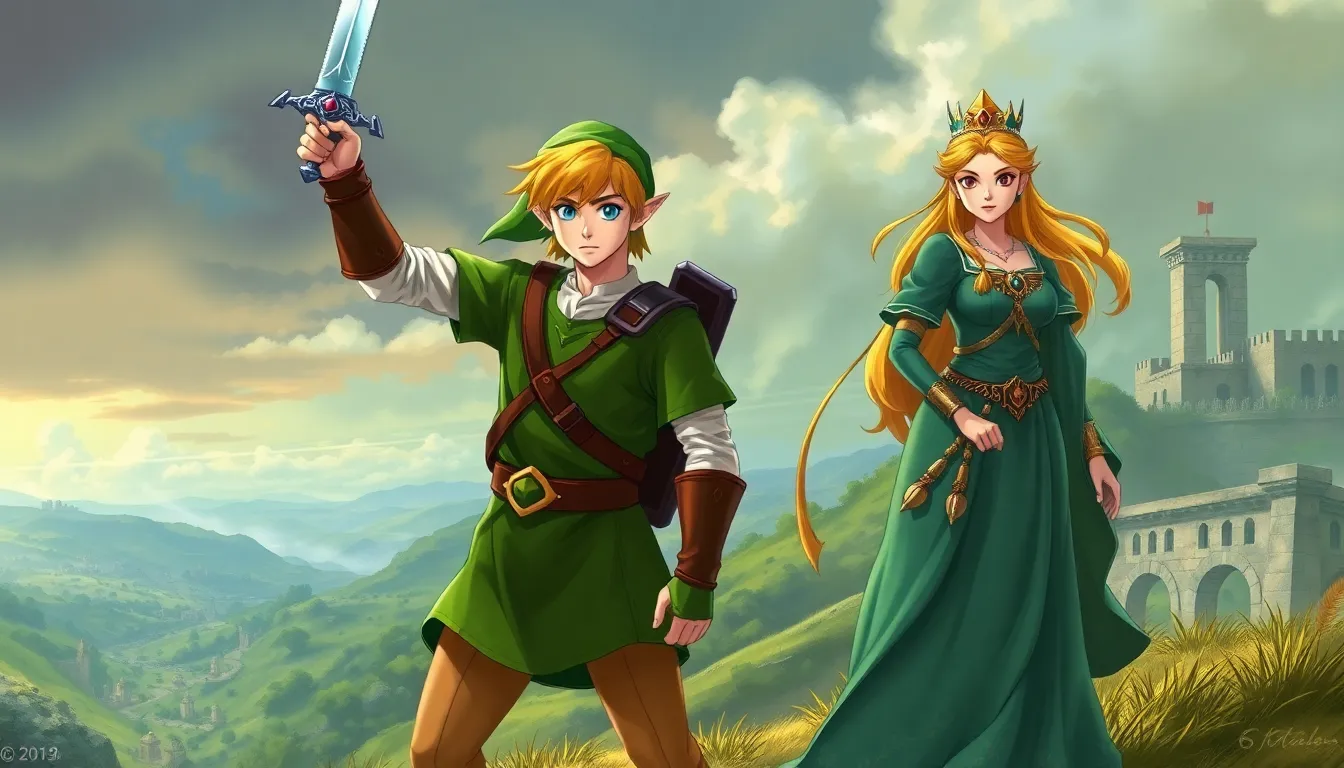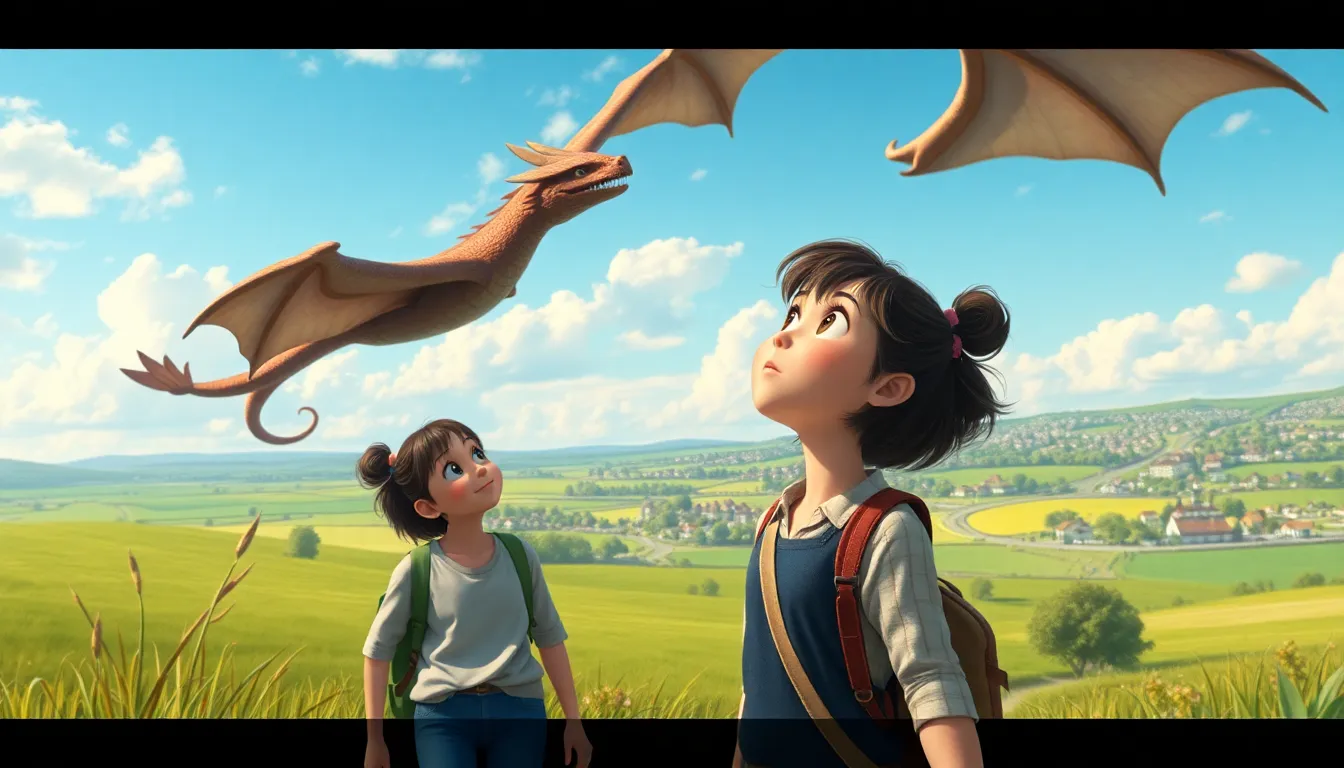In a world where princesses often find themselves in peril and heroic quests are just a sword swing away, the legend of Zelda stands out like a sparkling Triforce. Fans have long wondered about the origins of this iconic franchise, where adventure meets whimsy and a little bit of magic. What if the tale of Zelda began not with a hero but with a simple girl who just wanted to avoid a dragon on her way to the grocery store?
Delving into the origin story of Zelda reveals a treasure trove of creativity and inspiration. From its humble beginnings to becoming a beloved staple in gaming history, this saga is packed with unexpected twists. So grab your controller and get ready to uncover the enchanting journey that shaped a franchise and captured the hearts of millions. You might just find that the real adventure starts here.
Overview of Zelda’s Origin Story
Zelda’s origin story begins with a unique premise. Instead of a courageous hero, it introduces a young girl navigating an ordinary task—shopping for groceries. This twist sets the stage for a whimsical adventure. As the narrative unfolds, Zelda encounters various challenges, including a menacing dragon that adds urgency to her journey.
Early game concepts established Zelda as more than just a princess. She represents courage and resilience, often found in unexpected circumstances. The design team, inspired by various mythologies, crafted a richly detailed world enhanced by a captivating plot. This approach contributed to the franchise’s evolution from a simple dungeon crawler to a multifaceted storytelling experience.
A pivotal moment in Zelda’s development occurred with the introduction of the Triforce, a sacred relic embodying power, wisdom, and courage. This element deepened the narrative, creating a strong connection between Zelda and her heroic counterpart. Gamers began to appreciate the depth of her character beyond the traditional damsel trope.
Over time, the franchise explored different versions of Zelda, allowing her to play various roles. Each game brought new interpretations while maintaining essential traits. Zelda’s character, known for her intelligence and bravery, consistently captures the hearts of players.
With each installment, the franchise expanded its lore, enriching Zelda’s story. Iconic elements, such as Hyrule’s landscapes and the recurring theme of the hero’s journey, sustained interest. Thousands of fans engage with the legend through gameplay, art, and community discussions. The journey of Zelda remains a cornerstone of gaming culture, inviting exploration into her enchanting world.
Key Characters in the Zelda Series

The Legend of Zelda series features a range of characters that contribute to its rich storytelling and gameplay. Key figures include Link and Princess Zelda, whose roles evolve throughout the franchise.
Link
Link serves as the primary protagonist across the series. Often depicted as a young hero, he embodies courage, determination, and resilience. Various titles showcase different incarnations of Link, each facing unique challenges in Hyrule. Utilizing a broad array of weapons and tools, he adapts his combat style to overcome obstacles. Link’s adventures frequently intertwine with magical elements, such as the Master Sword and the Triforce. This iconic hero often finds himself rescuing Princess Zelda or battling the malevolent forces threatening his world. Throughout the series, Link’s growth as a character remains a focal point, captivating players through his journey.
Princess Zelda
Princess Zelda plays a crucial role within the franchise, often depicted as a figure of wisdom and power. She evolves from a typical damsel in distress to a character embodying bravery and intellect. Each game often presents her in different forms, emphasizing her ability to take an active role in the storyline. Sometimes Zelda possesses mystical abilities, while other times, she actively assists Link on his quest. Her relationship with Link is central, showcasing themes of friendship and cooperation. As the guardian of the Triforce of Wisdom, Zelda’s presence enriches the game’s lore, making her a vital character in the overarching narrative of the series.
The Setting of Hyrule
Hyrule stands as a vibrant and expansive kingdom within The Legend of Zelda franchise. This mythical land is rich with diverse landscapes, from lush forests to arid deserts and towering mountains. Players encounter many regions, each contributing distinct experiences that enhance gameplay.
The Kingdom of Hyrule features iconic areas like Hyrule Field, a vast grassland that serves as a central hub for exploration. Temples scattered throughout the region provide challenges and puzzle-solving opportunities. Each temple often holds valuable items and secrets that aid Link in his quest.
Time and again, Hyrule’s intricate lore intertwines with its geography. The Great Deku Tree and sacred locations like the Temple of Time deepen connections between characters and settings. Players feel a sense of heritage, as many elements draw inspiration from various mythologies.
Cultures and civilizations flourish within Hyrule, showcasing a blend of unique races. The Kokiri, Gorons, and Zoras represent just a few of Hyrule’s inhabitants, each bringing their own stories and quests. Characters from these races often reveal parts of Zelda’s origin story, enhancing her role and importance in the narrative.
Mythical creatures, both friends and foes, populate Hyrule. Fairies provide guidance and help, while fearsome foes challenge Link’s abilities. Such interactions add depth to the story, creating conflict and encouraging exploration.
Overall, the setting of Hyrule emphasizes a connection between its characters and the world they inhabit. Zelda’s presence within this realm highlights her significance, shaping her character’s development and the overarching storyline.
Major Games Influencing the Origin Story
Several key titles shaped the evolution of Zelda, crafting her narrative and solidifying her place in gaming history. Each game added layers to her character, enhancing player engagement.
The Legend of Zelda (1986)
Released in 1986, the original Legend of Zelda laid the foundation for future titles. It introduced players to Hyrule’s expansive world, where exploration was vital. Players navigated dungeons and completed puzzles, emphasizing gameplay that balanced adventure and strategy. Zelda, initially presented solely as a captive princess, made her first appearance as a character worthy of attention. The game’s mechanics and narrative style sparked interest in her story, hinting at her potential for growth beyond traditional roles.
The Legend of Zelda: Ocarina of Time
Ocarina of Time, launched in 1998, marked a milestone in the series. This game transformed Zelda into a more dynamic character with significant agency. Players encountered her in various forms, shifting from damsel in distress to a formidable ally, aiding Link throughout his quest. The introduction of time travel expanded the storyline, deepening connections between past and present. Notably, the Triforce’s role became more pronounced, intertwining her fate with Hyrule’s legend. This title solidified Zelda’s legacy as an enduring symbol of wisdom and courage, influencing subsequent narratives in the franchise.
The Evolution of Zelda’s Character
Evolving from a traditional princess role, Zelda’s character showcases resilience and intelligence. She emerged in the series as more than just a damsel in distress, gradually embodying themes of courage and wisdom. Early game concepts emphasized her significance, highlighting her as a pivotal character in Hyrule’s narrative.
Zelda’s transformation began with the introduction of the Triforce, a sacred relic symbolizing power, wisdom, and courage. Such elements deepened Zelda’s connection to Link, enriching the storyline and allowing her to play an active role in their adventures. Iconic titles like The Legend of Zelda: Ocarina of Time notably marked a shift, showcasing Zelda as a powerful ally rather than merely a captive figure.
Several installments reinforced Zelda’s diverse representations, with each version maintaining her core attributes. Players experienced different facets of her character, whether as a guardian or a strategist. The series consistently portrayed her as integral to the plot, intertwining her fate with Link’s journey through Hyrule.
Dynamic interactions between Zelda and Link highlight their partnership, emphasizing friendship and collaboration. As the keeper of the Triforce of Wisdom, Zelda’s significance extends beyond her royal lineage. Her character often embodies the spirit of adventure, compelling players to engage more deeply with the narrative.
By exploring various incarnations, the franchise nurtures player investment in Zelda’s journey. Each game reveals new layers to her character, sustaining interest while reinforcing her role in the overarching story. Her development reflects broader themes of empowerment and heroism, cementing her place as a beloved figure in gaming culture.
Cultural Impact of Zelda’s Origin Story
Zelda’s origin story significantly influenced gaming culture and broader media since its debut. Iconic elements from the franchise, like the Triforce, represent more than mere gameplay mechanics; they symbolize power, wisdom, and courage. Game developers often draw inspiration from these principles, which echo in various titles and genres.
Mythology deeply informs Zelda’s character development. The duality between Zelda and Link showcases elements of cooperation and strength. This relationship reshapes traditional storytelling, encouraging players to value teamwork over single-hero narratives.
The franchise’s success led to a rich tapestry of fan engagement. Online forums and communities regularly discuss theories and interpretations of Zelda’s role, creating a vibrant culture surrounding the games. Fans express their passion through art, cosplay, and fanfiction, thus expanding the narrative beyond the confines of the games.
Major games, such as The Legend of Zelda: Ocarina of Time, introduced innovative mechanics and character dynamics. Significant character development transforms Zelda from a typical damsel into a wise ally. Her evolution resonates with players, illustrating themes of empowerment and resilience.
Cultural references in other media reflect the series’ lasting impact. Movies, TV shows, and literature often cite or parody Zelda, leveraging its iconic status. This recognition reinforces the franchise’s influence on popular culture while showcasing its narrative depth.
Zelda’s journey encompasses a rich spectrum of themes. Courage, wisdom, and friendship present through gameplay and story resonate deeply with players. The franchise maintains relevance through engaging narratives and evolving character portrayals, ensuring its place in gaming history and cultural discourse.
Zelda’s origin story is a captivating blend of whimsy and depth that has evolved over the years. From her humble beginnings as a grocery store girl dodging dragons to becoming a symbol of courage and wisdom, her character has transcended traditional roles. The rich lore of Hyrule and the intricate dynamics between Zelda and Link have redefined storytelling in gaming.
As players continue to explore her world, they find a character who embodies resilience and intelligence. Zelda’s journey not only entertains but also inspires, reflecting broader themes of empowerment and teamwork. The franchise’s lasting cultural impact ensures that her story remains relevant and cherished, inviting new generations to experience the magic of The Legend of Zelda.



